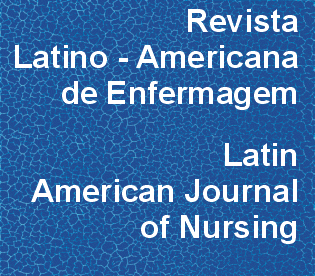Social representations of AIDS and their quotidian interfaces for people living with HIV
DOI:
https://doi.org/10.1590/S0104-11692011000300006Keywords:
Social Representations, HIV, Acquired Immunodeficiency Syndrome, Chronic DiseaseAbstract
This qualitative descriptive study, guided by the Social Representations Theory, aimed to describe the content of the social representations regarding the Acquired Immunodeficiency Syndrome (AIDS) for seropositive individuals in outpatient monitoring of the public health network and to analyze the interface of the social representations of AIDS with the quotidian of the individuals living with human immunodeficiency virus (HIV), especially in the adherence to treatment process Interviews were conducted with 30 seropositive individuals and the manual content analysis technique was used. From the analysis, six categories emerged that re-translated the quotidian of seropositive people permeated by the stigma, prejudice, struggle for life and the need for the continuous use of antiretrovirals. AIDS was assimilated to chronic diseases such as diabetes, showing a trend of transformation of the social representation of AIDS, substituting the idea of death, with life. It is concluded that people living with HIV are more optimistic due to effective treatments for the control of the disease.Downloads
Download data is not yet available.
Downloads
Published
2011-06-01
Issue
Section
Original Articles
License
RLAE’s authorship concept is based on the substantial contribution by each of the individuals listed as authors, mainly in terms of conceiving and planning the research project, collecting or analyzing and interpreting data, writing and critical review. Indication of authors’ names under the article title is limited to six. If more, authors are listed on the online submission form under Acknowledgements. The possibility of including more than six authors will only be examined on multicenter studies, considering the explanations presented by the authors.Including names of authors whose contribution does not fit into the above criteria cannot be justified. Those names can be included in the Acknowledgements section.
Authors are fully responsible for the concepts disseminated in their manuscripts, which do not necessarily reflect the editors’ and editorial board’s opinion.
How to Cite
Gomes, A. M. T., Silva, Érika M. P., & Oliveira, D. C. de. (2011). Social representations of AIDS and their quotidian interfaces for people living with HIV . Revista Latino-Americana De Enfermagem, 19(3), 485-492. https://doi.org/10.1590/S0104-11692011000300006



